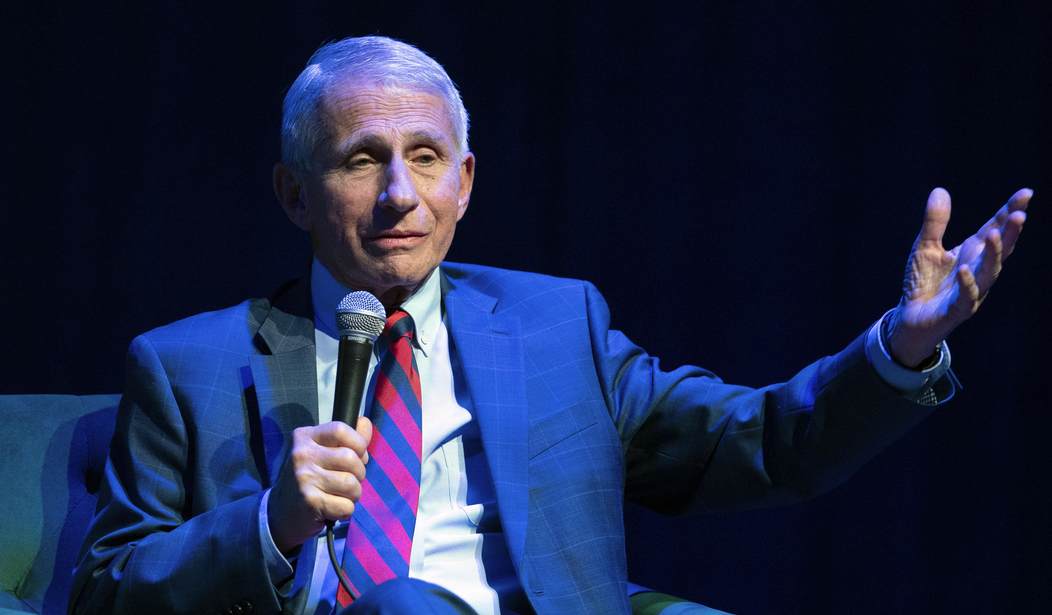Before we cut to the chase - I'm pretty sure if Health and Human Services secretary Robert F. Kennedy junior were to condemn kitchen stove grease fires, the Atlantic (and/or NPR) would run a "think" piece (that's what they call them) earnestly telling the world that kitchen stove grease fires are a positive good for the world.
I've got evidence.
Pinky swear, it's not the Babylon Bee. Indeed, it may be too "Atlantic"-y for even the Bee to satirize.
In a piece by David Merritt Johns, a group of experts...
...defended groupthink:
🚨Breaking: Academic experts say academic groupthink doesn’t exist. pic.twitter.com/oqGSF5yXT5
— Calley Means (@calleymeans) November 2, 2025
And of course it's a response to RFK Jr. and the rest of the Trump adminstration:
“Groupthink is the fundamental problem,” said National Institutes of Health Director Jay Bhattacharya in May. The nation’s scientific institutions have become hidebound.
According to Bhattacharya, Health Secretary Robert F. Kennedy Jr., and other top figures in the “Make America Healthy Again” movement, the pandemic brought this problem to the point of crisis. A small group of elite scientists settled upon the use of masks and lockdowns to fight the coronavirus. They closed ranks around their strategies and expelled dissenters. All of this was classic groupthink, the MAHA crowd has argued: a psychological phenomenon that occurs when people’s tendency to go along with the crowd prevents them from considering other courses of action. As a result, in their view, the public-health response to the coronavirus turned into catastrophe. Kids fell behind in school. Drug-overdose numbers exploded. Poor nations starved from supply-chain disruptions.
Now the government is out to quash this plague of poor decision making. In June, when Kennedy sacked all 17 members of the nation’s top vaccine-advisory panel, a Health Department spokesperson said that it was a remedy for “vaccine groupthink.” Upcoming changes to the U.S. dietary guidelines have been cast as a way of fighting groupthink too. Both Bhattacharya and the MAHA leader Calley Means have decried the groupthink infestation in our scientific institutions. And two months before his nomination to be FDA commissioner, Marty Makary published an entire book about the perils of medical groupthink. Health Department Press Secretary Emily Hilliard told me via email that Kennedy is “confronting groupthink by rebuilding a culture where scientists can question, debate, and follow evidence freely so that truth—not conformity—drives public health decisions.”
Scientists "questioning, debating, and following evidence?"
The technical term for this was what Mr. White in 9th-grade science class used to call "Science".
The article goes on to say (feel free to check me on this) that "Groupthink" is indefinable and may not exist, but is a good thing:
Groupthink doesn’t exist—according to “the experts”…the people most prone to groupthink.
— Common Sense Todd (@CommonSenseTodd) November 2, 2025
This may be the most Atlantic thing the Atlantic has ever Atlanticed. pic.twitter.com/OiJHcC7ppl
Yet the claim that our public-health mistakes can be pinned on some special force called groupthink is both unhelpful and misguided. For one thing, the label implies that we’d all be better off if a monkish master of “lonethink” could be recruited to weigh the science on their own, and then arrive at the objective answer to a thorny problem, such as whether to shut down schools and when to reopen them.
Literally the only ones to ever invoke this "monkish master" were the ones walking around with "Fauci" jerseys in 2020 and 2021.
The article goes on to point out that there is a way to harness the energy of groups toward better science:
Well-managed groups operating under clear and transparent rules—groups such as the vaccine-advisory committee and the U.S. Preventive Services Task Force (which Kennedy seems ready to also dismantle)—are some of the most powerful and trustworthy decision-making tools that we have. They are guided by published research and hard-won experience on how to avoid bad group decisions. For example, group leaders should not impose their views at the outset, and should make it clear that they value candid input from the team.
I'd love to ask Mr. Johns - does he think the process followed by the bureaucrats and politicians downstream from the "Preventive Service Task Force" followed those guidelines on helping groups not turn into logrolling collectives?
I'd love to hear the rationale.
It's not in this article.








